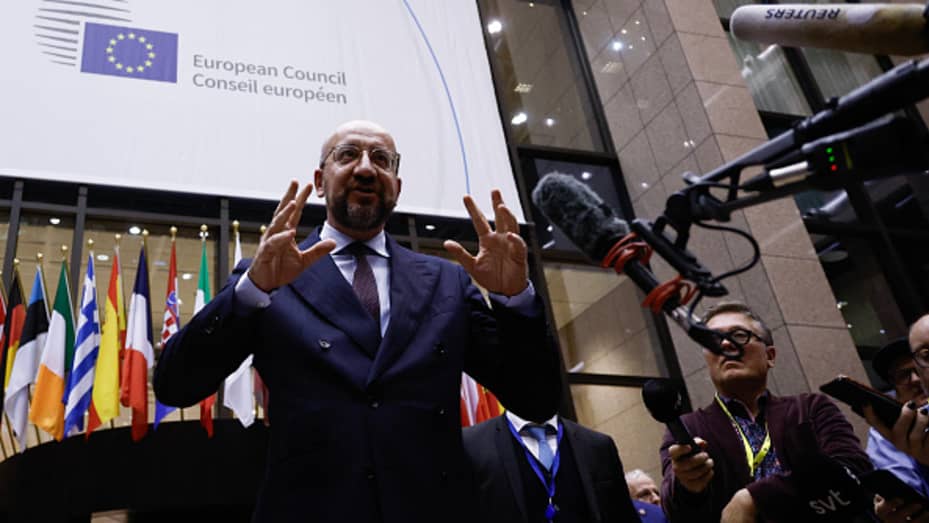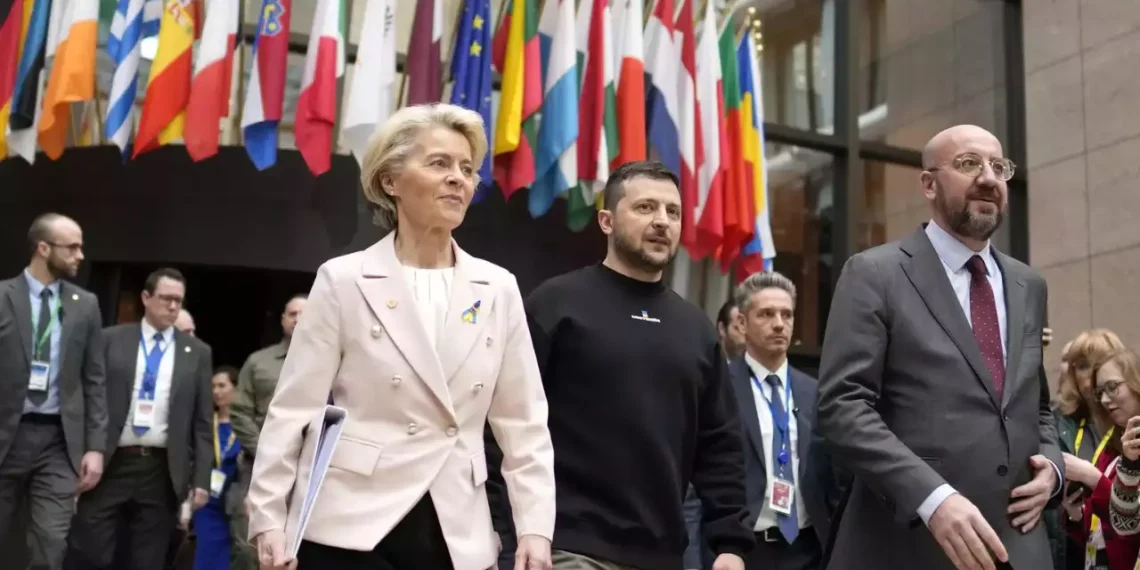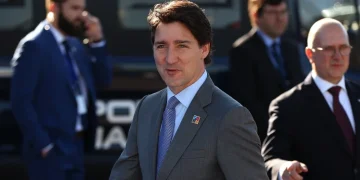The upcoming EU summit in Brussels holds critical significance as leaders seek to unlock €50 billion in funding for Ukraine, previously blocked by Hungary in December. The potential failure to secure an agreement poses a severe blow to Ukraine, struggling against renewed Russian assaults and a lack of military aid from the United States due to ongoing funding battles in Washington.
Hungarian Prime Minister Viktor Orban, while expressing support for Ukraine’s funding, insists that it should not be drawn from the EU budget. Orban deems the proposed €50 billion figure too high and demands an annual review for any funding deal. The 26 other EU leaders oppose these conditions, sparking tensions within the bloc.
Speculations arise regarding Orban’s motivations, with critics suggesting he may be leveraging the veto to secure funds for Hungary. If the deadlock persists, alternative arrangements outside the EU structures may involve direct financial contributions from individual governments to Ukraine. However, this approach is considered less desirable as it could be costlier and complicate coordination with existing EU programs in Ukraine.
There are additional proposals to generate revenue for Ukraine from frozen Russian assets within the EU. The mounting tensions are evident as Hungary accuses Brussels of blackmail following reports that EU officials are contemplating measures to impact the Hungarian economy in response to the funding blockage.

The outcome of the summit is crucial, given the challenges Ukraine faces on the battlefield and concerns about diminishing support. The geopolitical landscape is evolving, and there are fears that Ukraine may slip down the priority list of Western nations. European elections and potential shifts in political dynamics raise uncertainties about sustained support for Ukraine.
As the crisis approaches its two-year mark, fatigue sets in, questioning the feasibility of continuous assistance. Simultaneously, the consequences of Ukraine losing the war are deemed unconscionable for the rest of Europe, emphasizing the critical decisions and geopolitical considerations at play in the upcoming EU summit.





